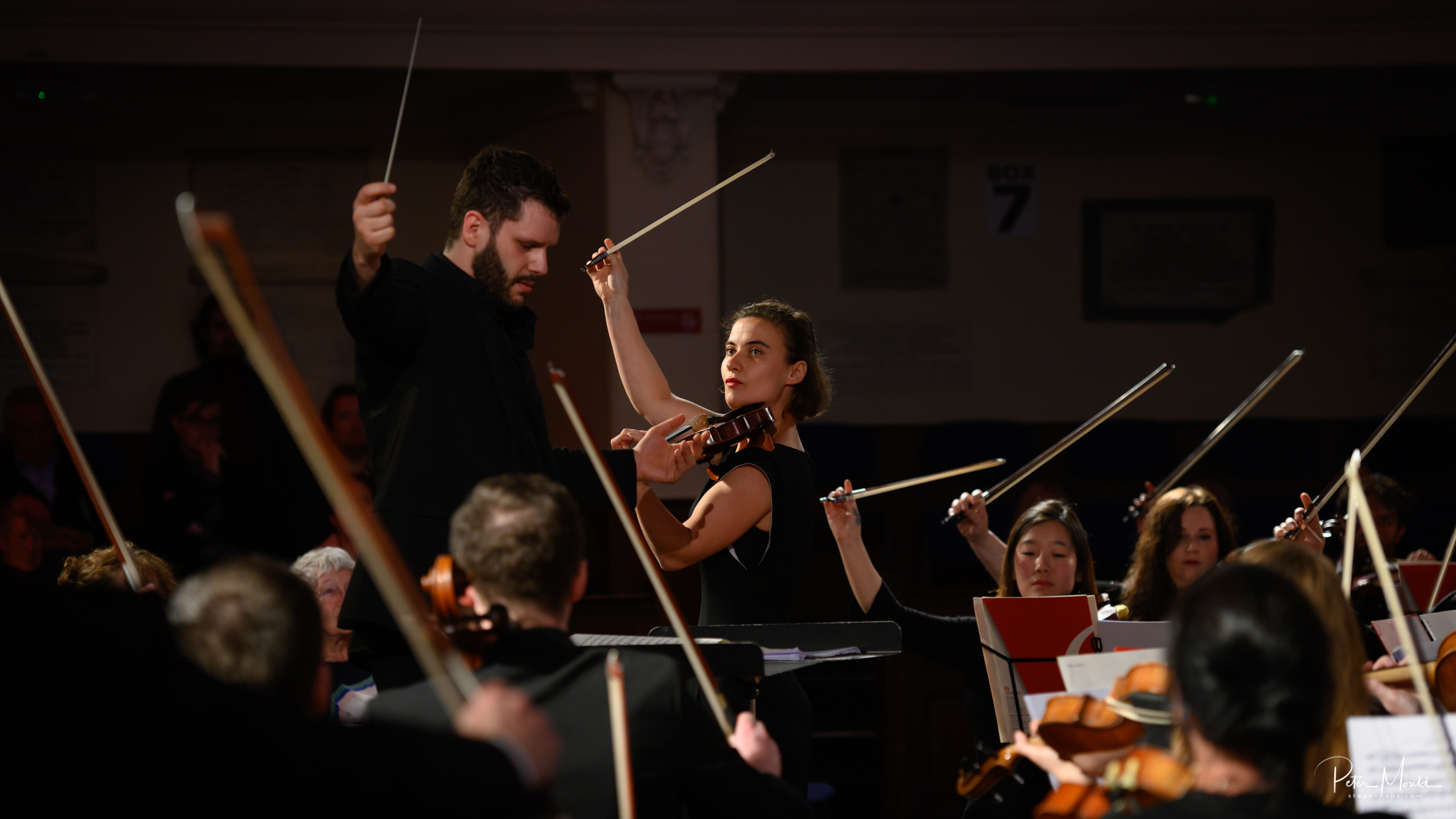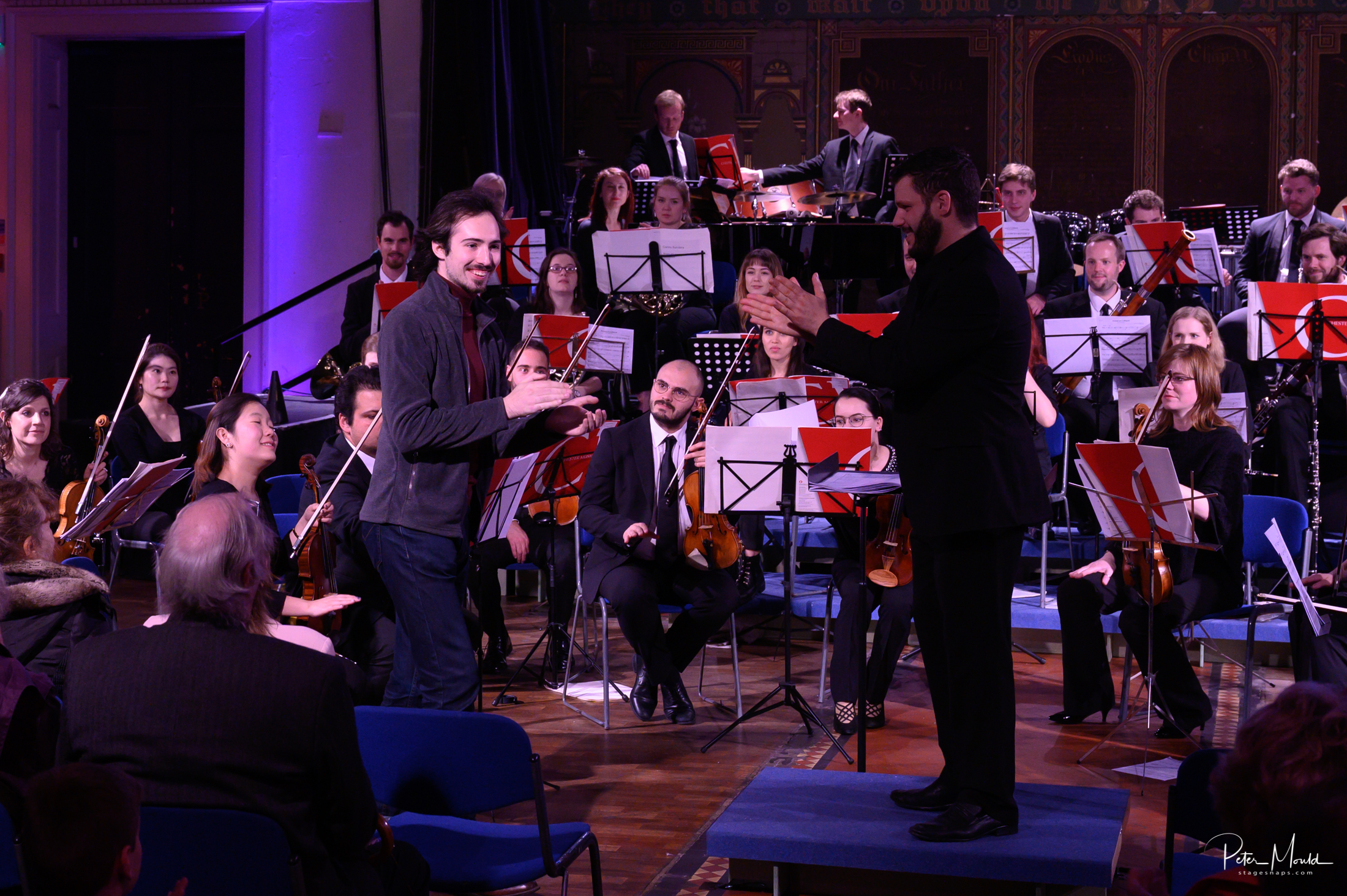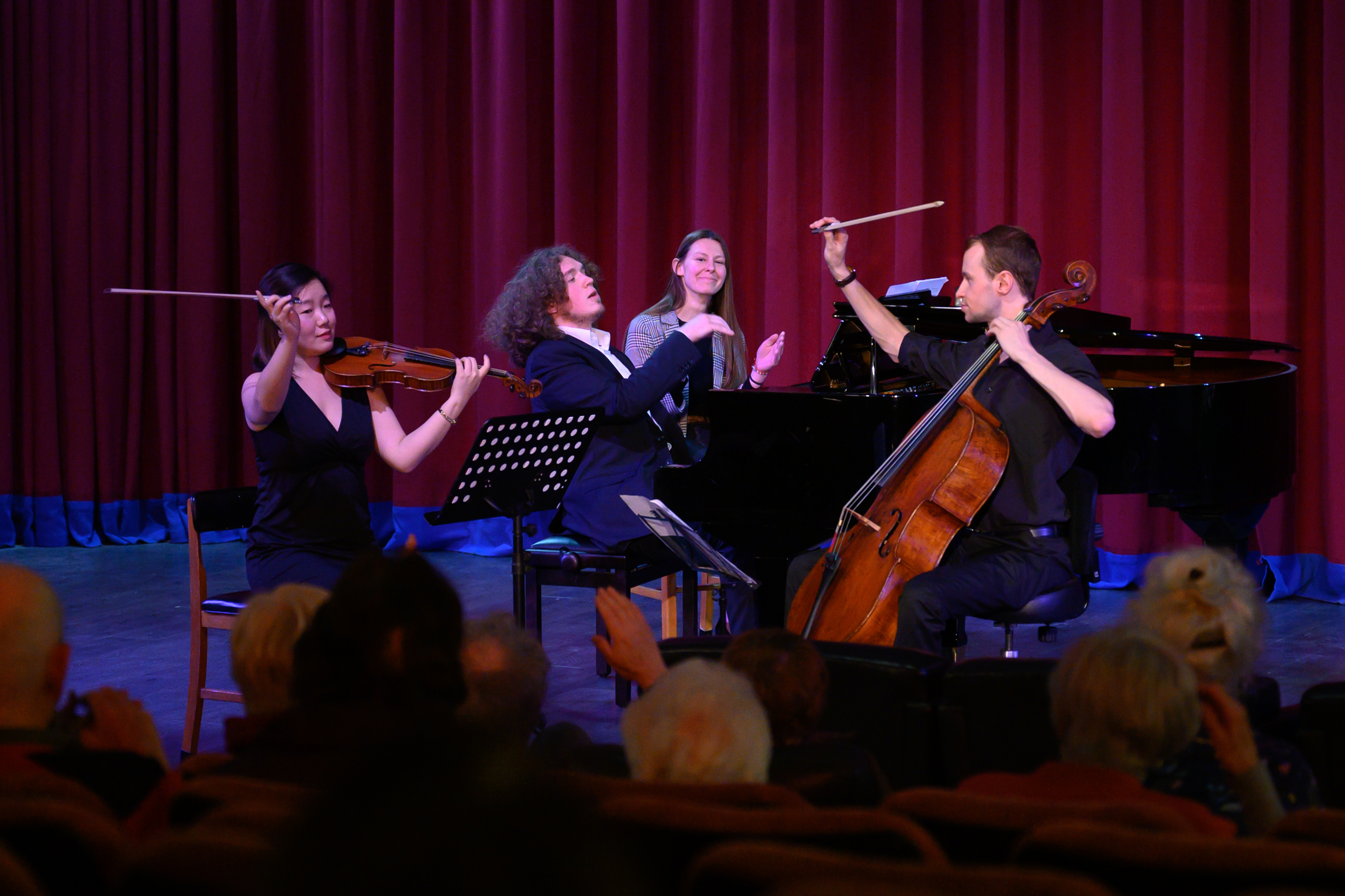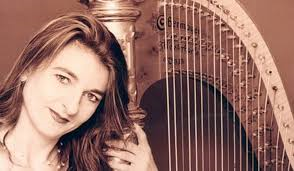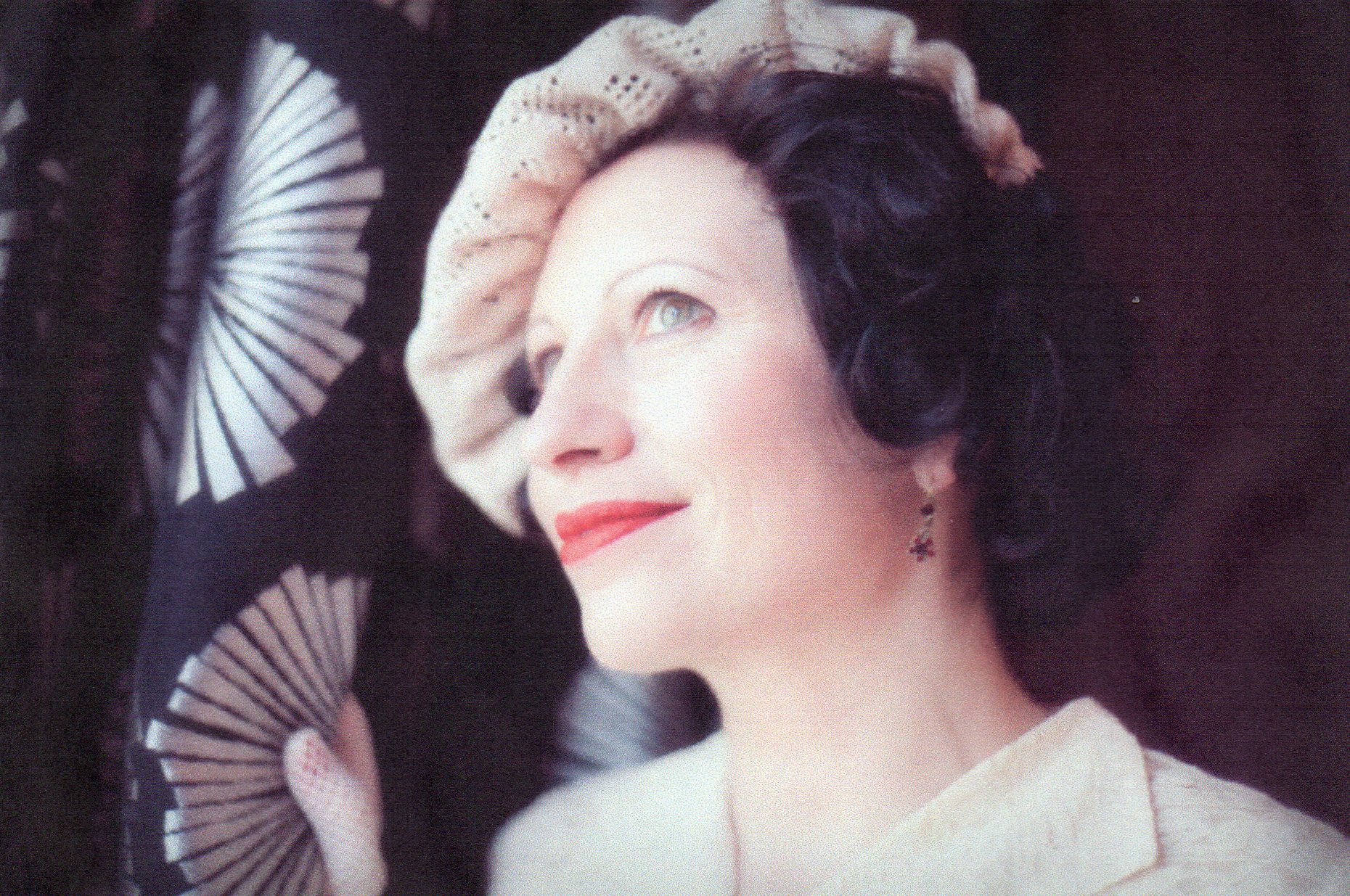St Mary in the Castle, Friday 3 May 2019
Hastings Philharmonic’s The Challenge of Change came to an exciting climax on Friday with the largest professional orchestra the town has seen in many years and the final of the Mustafa Kemal Ataturk Composition Competition.
The two familiar works which formed the buffer zone for the new compositions proved absolute winners. Aysen Ulucan was the fiery soloist in Tchaikovsky’s violin concerto. Fast, heart-on-sleeve and deeply romantic, her playing was often indulgent in all the right ways, sweeping us away on a cloud of intense, immersive emotion. The applause at the end of the first movement was genuinely spontaneous and quite justified. The finale was exhilaratingly fast and accurate, the orchestra keeping up with ease as all swept towards the climax.
At the end of the concert, while the judges were making their decision, we heard Stravinsky’s 1919 Firebird Suite. The range of colour here was very impressive as was the dynamic impact. Solo voices were very effective, with harp and bassoon particularly noteworthy.
The competition limited composers to about eight minutes each and their starting point was the life of Ataturk, whose anniversary fell in 2018, when the competition was launched. 136 composers responded from whom six were chosen to complete their works for performance on 3 May. In an informal session prior to the concert four of the composers spoke about their work and Marcio da Silva explained the brief rehearsal time the orchestra had had with the six new scores.
Though taking very different approaches to the Turkish leader, the scores had a remarkable similarity in outcome, using a wide range of tonal and dynamic effects – emotional impact seeming to be more important than any narrative development or melodic engagement. The audience were asked to vote for their favourite which went to American composer Carlos Bandera and the judges panel chose Welsh composer Luciano Williamson’s Kemal at Gallipoli as the overall winner. His atmospheric piece focused on the night before the charge at Gallipoli.
Hastings Philharmonic goes from strength to strength and their next event could hardly be more different with an evening of English Madrigals at Christ Church, St Leonards, on 22 June.
Photos © Peter Mould

